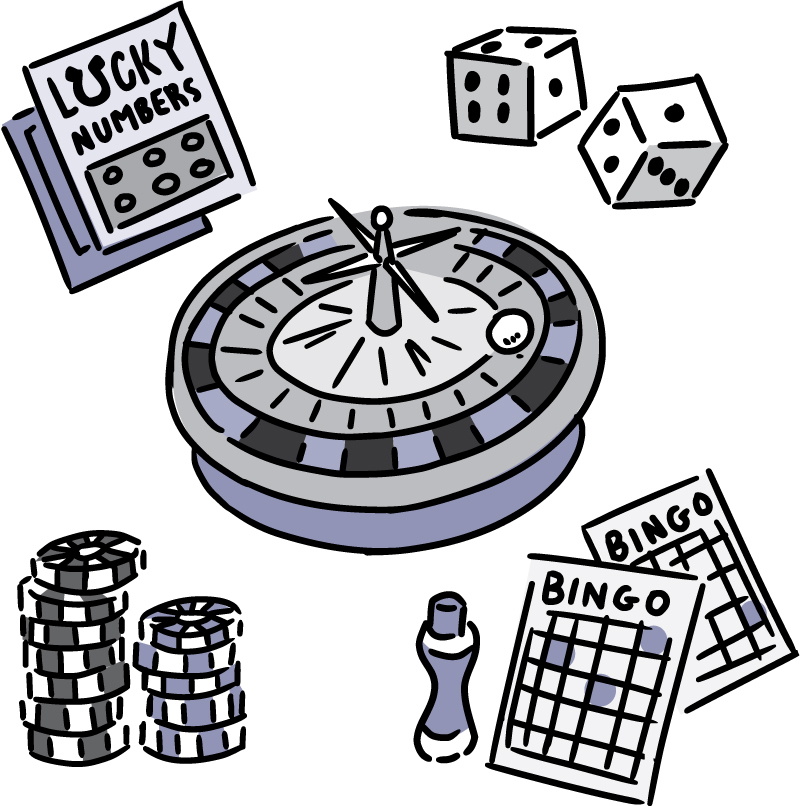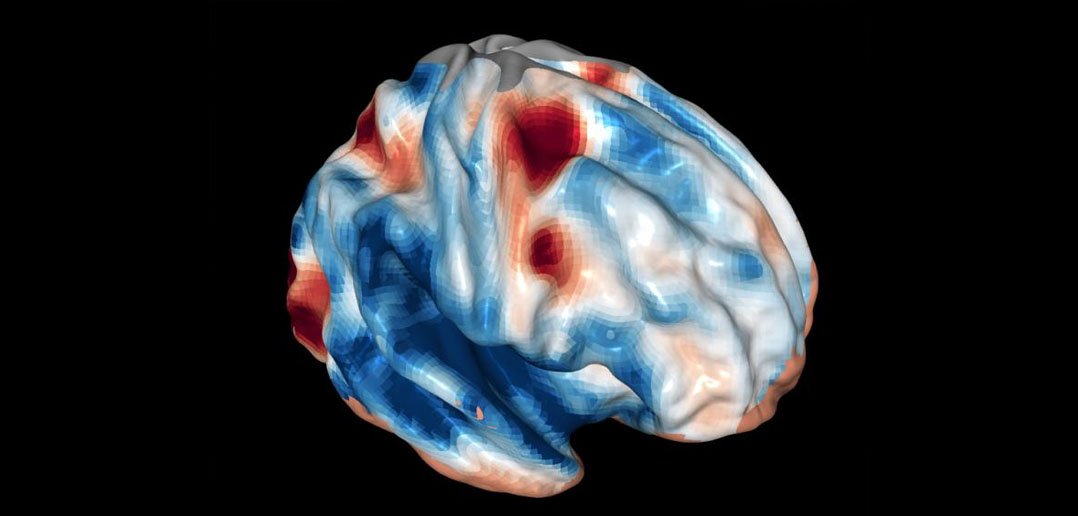- What Part Of The Brain Causes Gambling Problems Associated
- What Part Of The Brain Causes Gambling Problems Involving
- What Part Of The Brain Causes Gambling Problems Caused

Hypothalamic dysfunction is a problem with part of the brain called the hypothalamus. The hypothalamus helps control the pituitary gland and regulates many body functions.
There is no one single cause of gambling addiction. Instead, there are multiple causes that can be grouped into four basic categories. These four categories are: 1) biological causes, 2) psychological causes, 3) socio-cultural causes, and 4) spiritual causes. Psychologists call this the Bio-Psycho-Social-Spiritual Model of addiction. The study, funded by the UK Medical Research Council, found that two brain areas, called the insula and nucleus accumbens, are highly active when people with gambling addiction experience cravings. People with gambling disorder continue to gamble even when it no longer brings them pleasure. This behavior stems from parts of the brain that establish habits. Habit formation occurs in the dorsal striatum, also known as the 'habit hub.' Over -indulgence in pleasurable behaviors causes brain activity to shift from the reward hub to the. The other brain region that is often implicated in gambling and substance use disorders is the prefrontal cortex. This region is involved in decision-making, controlling impulsivity, and cognitive control. There are many causes of hypothalamic dysfunction. The most common are surgery, traumatic brain injury, tumors, and radiation. Other causes include: Nutrition problems, such as eating disorders (anorexia), extreme weight loss; Blood vessel problems in the brain, such as aneurysm, pituitary apoplexy, subarachnoid hemorrhage.
The hypothalamus helps keep the body's internal functions in balance. It helps regulate:
- Appetite and weight
- Body temperature
- Childbirth
- Emotions, behavior, memory
- Growth
- Production of breast milk
- Salt and water balance
- Sex drive
- Sleep-wake cycle and the body clock
Another important function of the hypothalamus is to control the pituitary gland. The pituitary is a small gland at the base of the brain. Salon de eventos casino de la armada guayaquil. It lies just below the hypothalamus. The pituitary, in turn, controls the:
- Ovaries
- Thyroid gland
There are many causes of hypothalamic dysfunction. The most common are surgery, traumatic brain injury, tumors, and radiation.
This is the largest casino ever and staff are very pleasant and helpful. Sure, its a casino and you may not win but its also great entertainment! Tried many of the restrurants and found them to be goo. I love that this place is huge.lots of slots and table games.it's so big you can really get lost. Winstar world casino dallas tx. The WinStar World Casino Hotel is determined to meet – and exceed – your every expectation. From your choice of three lavishly appointed hotel towers, you'll have a soaring view of the Oklahoma woods and hills or one of our glistening pools. Whatever you desire, we aim to satisfy – day or night. Discover the thrill of winning and a world of luxury at WinStar World Casino and Resort – the ultimate casino resort destination for entertainment!
Other causes include:

- Nutrition problems, such as eating disorders (anorexia), extreme weight loss
- Blood vessel problems in the brain, such as aneurysm, pituitary apoplexy , subarachnoid hemorrhage
- Genetic disorders, such as Prader-Willi syndrome, familial diabetes insipidus, Kallmann syndrome
- Infections and swelling (inflammation) due to certain immune system diseases
Symptoms are usually due to the hormones or brain signals that are missing. In children, there may be growth problems, either too much or too little growth. In other children, puberty occurs too early or too late.
Tumor symptoms may include headache or loss of vision.
If the thyroid is affected, there may be symptoms of an underactive thyroid (hypothyroidism). Symptoms may include feeling cold all the time, constipation, fatigue, or weight gain, among others.
If the adrenal glands are affected, there may be symptoms of low adrenal function. Symptoms may include fatigue, weakness, poor appetite, weight loss, and lack of interest in activities.
The health care provider will perform a physical examination and ask about your symptoms.
Blood or urine tests may be ordered to determine levels of hormones such as:
- Estrogen
- Pituitary hormones
- Thyroid
- Sodium
- Blood and urine osmolality
Other possible tests include:
- Hormone injections followed by timed blood samples
- MRI or CT scans of the brain
- Visual field eye exam (if there is a tumor)
Treatment depends on the cause of the hypothalamic dysfunction:
- For tumors, surgery or radiation may be needed.
- For hormonal deficiencies, missing hormones need to be replaced by taking medicine. This is effective for pituitary problems, and for salt and water balance.
- Medicines are usually not effective for changes in temperature or sleep regulation.
- Some medicines may help with problems related to appetite regulation.
Many causes of hypothalamic dysfunction are treatable. Most of the time, missing hormones can be replaced.
Complications of hypothalamic dysfunction depend on the cause.
BRAIN TUMORS
- Permanent blindness
- Problems related to the brain area where the tumor occurs
- Vision disorders
- Problems controlling salt and water balance

HYPOTHYROIDISM
- Heart problems
ADRENAL INSUFFICIENCY
- Inability to deal with stress (such as surgery or infection), which can be life threatening by causing low blood pressure

SEX GLAND DEFICIENCY
- Heart disease
- Thin bones (osteoporosis)
- Problems breast feeding

Hypothalamic dysfunction is a problem with part of the brain called the hypothalamus. The hypothalamus helps control the pituitary gland and regulates many body functions.
There is no one single cause of gambling addiction. Instead, there are multiple causes that can be grouped into four basic categories. These four categories are: 1) biological causes, 2) psychological causes, 3) socio-cultural causes, and 4) spiritual causes. Psychologists call this the Bio-Psycho-Social-Spiritual Model of addiction. The study, funded by the UK Medical Research Council, found that two brain areas, called the insula and nucleus accumbens, are highly active when people with gambling addiction experience cravings. People with gambling disorder continue to gamble even when it no longer brings them pleasure. This behavior stems from parts of the brain that establish habits. Habit formation occurs in the dorsal striatum, also known as the 'habit hub.' Over -indulgence in pleasurable behaviors causes brain activity to shift from the reward hub to the. The other brain region that is often implicated in gambling and substance use disorders is the prefrontal cortex. This region is involved in decision-making, controlling impulsivity, and cognitive control. There are many causes of hypothalamic dysfunction. The most common are surgery, traumatic brain injury, tumors, and radiation. Other causes include: Nutrition problems, such as eating disorders (anorexia), extreme weight loss; Blood vessel problems in the brain, such as aneurysm, pituitary apoplexy, subarachnoid hemorrhage.
The hypothalamus helps keep the body's internal functions in balance. It helps regulate:
- Appetite and weight
- Body temperature
- Childbirth
- Emotions, behavior, memory
- Growth
- Production of breast milk
- Salt and water balance
- Sex drive
- Sleep-wake cycle and the body clock
Another important function of the hypothalamus is to control the pituitary gland. The pituitary is a small gland at the base of the brain. Salon de eventos casino de la armada guayaquil. It lies just below the hypothalamus. The pituitary, in turn, controls the:
- Ovaries
- Thyroid gland
There are many causes of hypothalamic dysfunction. The most common are surgery, traumatic brain injury, tumors, and radiation.
This is the largest casino ever and staff are very pleasant and helpful. Sure, its a casino and you may not win but its also great entertainment! Tried many of the restrurants and found them to be goo. I love that this place is huge.lots of slots and table games.it's so big you can really get lost. Winstar world casino dallas tx. The WinStar World Casino Hotel is determined to meet – and exceed – your every expectation. From your choice of three lavishly appointed hotel towers, you'll have a soaring view of the Oklahoma woods and hills or one of our glistening pools. Whatever you desire, we aim to satisfy – day or night. Discover the thrill of winning and a world of luxury at WinStar World Casino and Resort – the ultimate casino resort destination for entertainment!
Other causes include:
- Nutrition problems, such as eating disorders (anorexia), extreme weight loss
- Blood vessel problems in the brain, such as aneurysm, pituitary apoplexy , subarachnoid hemorrhage
- Genetic disorders, such as Prader-Willi syndrome, familial diabetes insipidus, Kallmann syndrome
- Infections and swelling (inflammation) due to certain immune system diseases
Symptoms are usually due to the hormones or brain signals that are missing. In children, there may be growth problems, either too much or too little growth. In other children, puberty occurs too early or too late.
Tumor symptoms may include headache or loss of vision.
If the thyroid is affected, there may be symptoms of an underactive thyroid (hypothyroidism). Symptoms may include feeling cold all the time, constipation, fatigue, or weight gain, among others.
If the adrenal glands are affected, there may be symptoms of low adrenal function. Symptoms may include fatigue, weakness, poor appetite, weight loss, and lack of interest in activities.
The health care provider will perform a physical examination and ask about your symptoms.
Blood or urine tests may be ordered to determine levels of hormones such as:
- Estrogen
- Pituitary hormones
- Thyroid
- Sodium
- Blood and urine osmolality
Other possible tests include:
- Hormone injections followed by timed blood samples
- MRI or CT scans of the brain
- Visual field eye exam (if there is a tumor)
Treatment depends on the cause of the hypothalamic dysfunction:
- For tumors, surgery or radiation may be needed.
- For hormonal deficiencies, missing hormones need to be replaced by taking medicine. This is effective for pituitary problems, and for salt and water balance.
- Medicines are usually not effective for changes in temperature or sleep regulation.
- Some medicines may help with problems related to appetite regulation.
Many causes of hypothalamic dysfunction are treatable. Most of the time, missing hormones can be replaced.
Complications of hypothalamic dysfunction depend on the cause.
BRAIN TUMORS
- Permanent blindness
- Problems related to the brain area where the tumor occurs
- Vision disorders
- Problems controlling salt and water balance
HYPOTHYROIDISM
- Heart problems
ADRENAL INSUFFICIENCY
- Inability to deal with stress (such as surgery or infection), which can be life threatening by causing low blood pressure
SEX GLAND DEFICIENCY
- Heart disease
- Thin bones (osteoporosis)
- Problems breast feeding
GROWTH HORMONE DEFICIENCY
- High cholesterol
- Osteoporosis
- Short stature (in children)
- Weakness
Call your provider if you have:
- Headaches
- Symptoms of hormone excess or deficiency
- Vision problems
What Part Of The Brain Causes Gambling Problems Associated
If you have symptoms of a hormonal deficiency, discuss replacement therapy with your provider.
Giustina A, Braunstein GD. Hypothalamic syndromes. In: Jameson JL, De Groot LJ, de Kretser DM, et al, eds. Endocrinology: Adult and Pediatric. 7th ed. Philadelphia, PA: Elsevier Saunders; 2016:chap 10.
What Part Of The Brain Causes Gambling Problems Involving
What does gambling means in french. Weiss RE. Neuroendocrinology and the neuroendocrine system. In: Goldman L, Schafer AI, eds. Goldman-Cecil Medicine. 26th ed. Philadelphia, PA: Elsevier; 2020:chap 210.
What Part Of The Brain Causes Gambling Problems Caused
Updated by: Brent Wisse, MD, board certified in Metabolism/Endocrinology, Seattle, WA. Also reviewed by David Zieve, MD, MHA, Medical Director, Brenda Conaway, Editorial Director, and the A.D.A.M. Editorial team.
